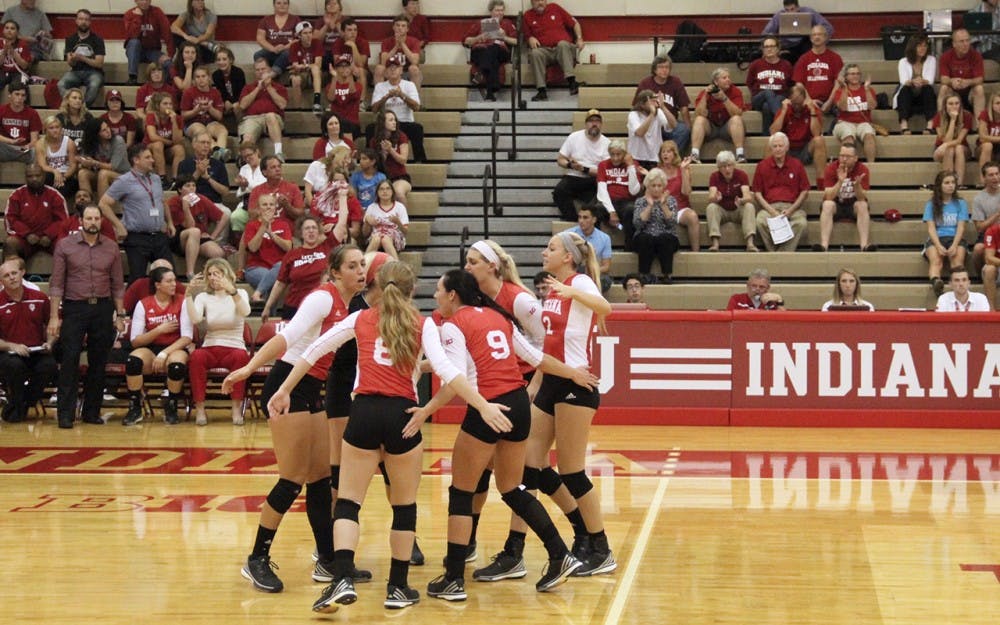IU Volleyball is a family.
Ever since IU Coach Sherry Dunbar-Kruzan took the reigns of her first head coaching position at the College of Charleston, she has implemented a system to form connections between players.
Each underclassman is given a big sister on the roster and will gain a little sister in the following years.
“The girls pull strengths out of each other and are role models for each other, but they can also just be a support system,” Dunbar-Kruzan said. “That should be the one person that they go to and can trust. If they need to vent or if they need to be chewed out or congratulated, that is one person they can always count on.”
This year’s big and little sister selection process differed from that of years past, as they enlisted a third party to help form proper pairs.
The Hoosiers brought in Humanext to issue personality assessments to each player and select mutually beneficial combinations based on those assessments. Dunbar-Kruzan had IU’s sports psychology team talk to Humanext and find out what kind of research the company had done that would qualify them.
“The assessment also allows us to coach them better and to learn about their personalities more, like goal-setting and things like that,” Dunbar-Kruzan said. “I had never been big on using that sort of thing, but we got so much good feedback.”
The intention of the big and little sister program is to ease the transition into college for younger players and to have a teammate they can always look to for advice. Oftentimes, these special relationships form strong bonds that extend beyond their college years.
Junior outside hitter Jessica Leish recounts her experience with her big sister Courtney Harnish, who graduated last year, and ties in what Harnish taught her to what she teaches her little, freshman middle blocker Deyshia Lofton.
As students of the Kelley School of Business, Lofton is thankful she had Leish to help her adjust to college life and claims she would have been in the dark about a lot of things, like how to schedule classes, which classes to take and how to find the rooms.
“My favorite part of the program is having Jess as a big sister,” Lofton said. “We really vibe well together and we like to make each other laugh. We have movie nights and we eat dinner together, and it’s a cool relationship to have.”
Without the big and little sister connection, Lofton does not believe she would have the same relationship with Leish. She believes the fact freshmen live on campus would pose a barrier to growing friendships if there was no predetermined arrangement.
However, whether they are watching each other on the court or teaching each other dance moves, there is always an abundance of pride between these sisters.
“I get very excited when Deysh gets a kill or does something good on the court,” Leish said. “She’s also really good at dancing, and I’m not, but she hypes me up and makes me feel like I’m good. It’s really nice to have that support system.”
The sisters program is different from the team’s leadership council, yet complements it nicely. Dunbar-Kruzan said if the council notices someone isn’t performing well on the court or in the classroom, they will find the player’s big sister and have them approach their counterpart to solve the issue.
The logic behind this is there is already a trust factor between the sisters. Therefore, the leadership council or coaching staff transfers the responsibility of confronting the player to her sister so the player doesn’t feel like multiple people are attacking her.
“All of these programs that we do take a lot of work,” Dunbar-Kruzan said. “As a coaching staff, we feel like there is a real value to the big and little sisters program, and the girls have bought into it. The fact that they have developed their relationships and that they extend past college is a really cool thing.”




